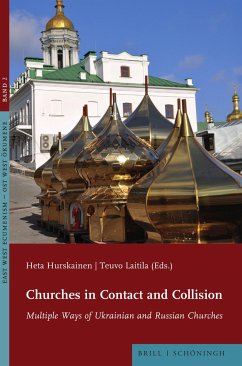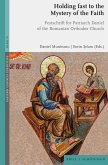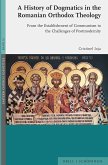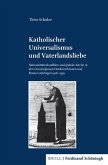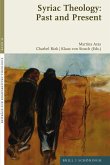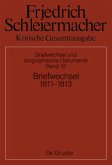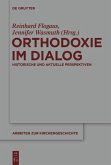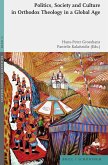Orthodox churches in Ukraine and Russia share a common ecclesiastical tradition but differ in their views on practicing and interpreting it. To bolster their own views, different Orthodox churches emphasize different aspects of history, and 'forget' others, not favorable for their interpretations. These intentional memorizing also influence on the churches' reflection of their position and role in society at large.Interpretations of ecclesiastical tradition also influence the Orthodox churches' reactions to the other churches in Ukraine. Abroad, ecclesiastical organizations, especially ecumenical bodies are also influenced by the Ukrainian Orthodoxy, and have influence on the Ukrainian and Russian Orthodoxy, when recognizing or leaving without recognition the multiplicity of the Orthodox faith in Ukraine and Russia.
Bitte wählen Sie Ihr Anliegen aus.
Rechnungen
Retourenschein anfordern
Bestellstatus
Storno

